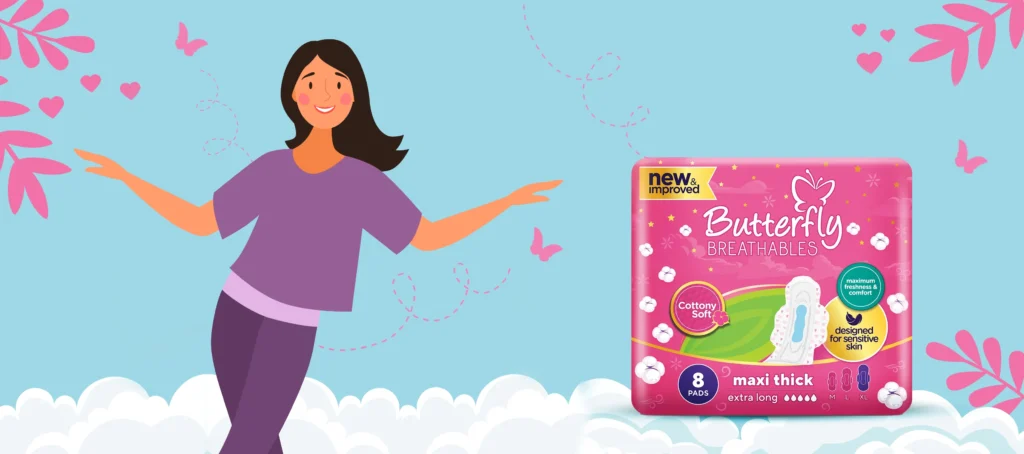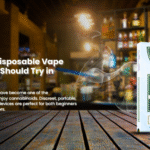Every woman must manage hygienic care on a daily basis. Along with hygiene, there is emotional context to consider, as care to the proper hygienic routine promotes self-confidence. Currently, there is considerably more variety in the feminine hygiene products to accommodate the greater personalization needs of gentle & intimate wellness, and menstrual care. In this guide, we enumerated the essential feminine hygiene products, their benefits, and the difference they can make in daily life, especially when the right products are selected.
The Nature of Feminine Hygiene
Feminine hygiene describes the practices and products designed to keep the intimate parts of the body clean, fresh, and healthy. Adopting hygienic care helps prevent infections, irritation, and discomfort, while also confidence in daily life and during menstruation.
Improper care can lead to more chronic issues such as sensitivity, dryness, and odor. However, gentle feminine hygiene products can mitigate these issues. Feminine hygiene products need to be made with care to body balance so that they do not aggravate potential irritations.
Key Feminine Hygiene Essentials
Sanitary Pads
Sanitary pads are external menstrual products that absorb menstrual flow. They come in different sizes, lengths, and absorbencies to suit different flow levels throughout each phase of the menstrual cycle.
Advantages:
– They are user-friendly and can be easily purchased.
– They are ideal for young girls and menstrual newcomers.
– They offer all-day protection when changed regularly.
Maintenance:
To uphold hygiene standards and to avoid bacterial proliferation, pads should be changed every 4-6 hours. Use pads made from soft, breathable materials to reduce the risk of frictional irritations.
Tampons
Constructed from highly absorbent materials, tampons provide menstrual protection in an internal form. They are ideal for women who lead an active lifestyle, as they provide the ability to participate in physical activities without worrying about menstrual flow.
Advantages:
– They provide the ability to participate in activities like sports, swimming, and travel.
– They are easy to carry and offer protection in a compact form.
Safety Precautions:
Feminine hygiene products should be changed regularly to mitigate health risks. Tampons, in particular, should be changed every 4-8 hours to prevent the risk of Toxic Shock Syndrome (TSS). To prevent dryness and leakage, choose a tampon with the appropriate absorbency for your flow.
Menstrual Cups
Menstrual cups are a new and environmentally friendly substitute for disposable feminine hygiene products. Made of medical-grade silicone, these soft, flexible cups collect menstrual fluid, providing a different approach in menstrual hygiene protection.
Beneficial Aspects
– Environmentally friendly, reusable.
– Durable, economically beneficial.
– Can be worn for 12 continuous hours.
Recommendations
To maximize sterilization, ensure the cup is clean before, during, and after each cycle. Insertion can take practice, but the cup is comfortable once worn and convenient after a few adjustments.
Panty Liners
These provide a level of protection to maintain daily freshness. They are appropriate for days with light discharge, spotting, or as a backup with tampons and menstrual cups.
Benefits
– It helps to keep the underwear dry and free from unpleasant odors.
– Lightweight and comfortable for daily wear.
Suggestion
To minimize the risk of irritation, use unflavored panty liners. They should be replaced regularly to maintain hygiene.
Intimate Washes and Wipes
These products maintain clean and healthy pH levels in the vaginal area. They are essential during menstruation, travel, and post-workout.
Benefits
– Reduces odor and irritation.
– Promotes a balance and a refreshing feeling.
Note
Regular soap and harsh cleansers should be avoided in intimate areas. Use gentle, pH-balanced feminine care products.
Eco-Friendly And Reusable Menstrual Hygiene Products
Many women are adopting eco-friendly menstrual products as they become more sustainable. These alternatives are not only environmentally sustainable, but also reduce discomfort and save money in the long run.
Sustainable Products Include:
– Cloth Pads: Soft and washable, cloth pads are the perfect alternative to disposable pads.
– Period Underwear: Reusable period underwear provides absorbent and leak-proof protection.
– Organic Cotton Pads and Tampons: These products are the best alternatives as they do not contain chemicals, synthetic fragrances, and dyes, and are safe for sensitive skin.
Using reusable and biodegradable products will eliminate self guilt, improve personal hygiene, and protect the planet.
Pick What’s Best For You
Picking the most suitable product will depend on individual preferences and needs, but the following should be considered:
– Flow Intensity: For days with heavy flow, use products with stronger absorbency, and for the end of the cycle, use lighter products.
– Activity Level: If you are engaging in sports or travel, flexible items such as menstrual cups and tampons will be less cumbersome.
– Skin Sensitivity: If you have sensitive skin, choose products made from organic or hypoallergenic materials.
– Environmental Impact: For eco-conscious individuals, sustainable living can be enhanced with reusable menstrual cups or cloth pads.Consider identifying combinations of various products that would help you achieve the comfort and confidence support you need.
Hygiene and Care Best Practices
Good menstrual hygiene involves more than choosing the right menstrual product; it is caring for your body along with the product to promote long-lasting health.
Essential hygiene practices include the following tips:
- Wash your hands before and after using any menstrual product.
- Change your menstrual product regularly to prevent the growth of bacteria and bad smell.
- Use cotton underwear to minimize irritation.
- Do not douche or use scented products on or around your genitals.
- Drink enough water and eat a balanced diet for your overall reproductive health.
These practices reduce discomfort and support your body’s natural cycle.
Focus on the Goal and Reap the Benefits
Menstruation and feminine hygiene continue to have social taboos; restricted conversations. With the increase of awareness, there is now improved discussion on these hygiene practices. In addition to these hygiene practices, the education surrounding menstruation, especially to younger girls, is invaluable.
Women, for these conversations to be accepted, need to be provided with the correct products and knowledge. The conversations would be deemed important and be linked to improved social standing. Including these practices would be the first step to improved support of gender equality and empowerment.
Conclusion
Maintaining proper hygiene is essential for one’s health and comfort. There is a wide and varied selection of products available for a woman to manage her period. The choice can be a padded sanitary napkin, a tampon, a menstrual cup, or even a pair of reusable menstrual underwear. There are products which a woman can choose which are comfortable, safe and even environmentally sustainable.
There are products which a woman can choose which are comfortable, safe and even environmentally sustainable. Having control and the right to choose products that a woman can choose which are comfortable, and even environmentally sustainable. Having control and the right to choose products that are safe, comfortable, and environmentally friendly for a woman to manage her period is to take care of their health and their hygiene.






